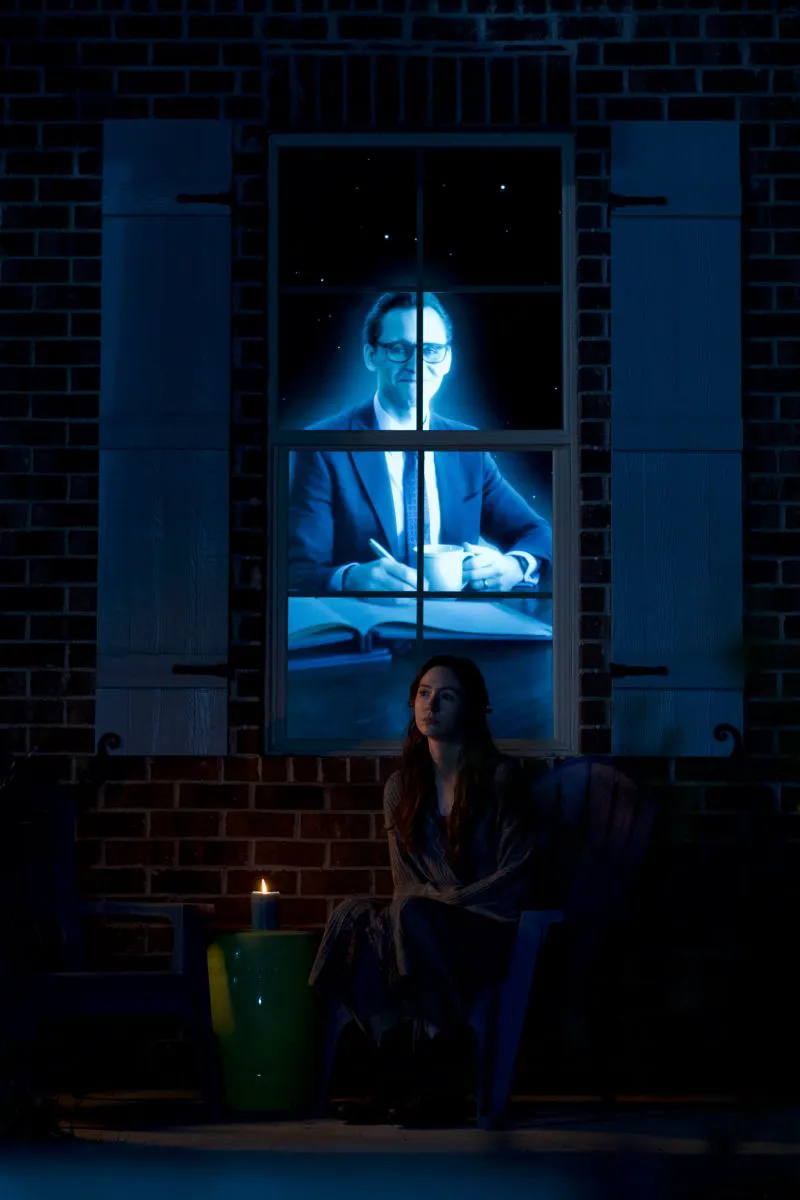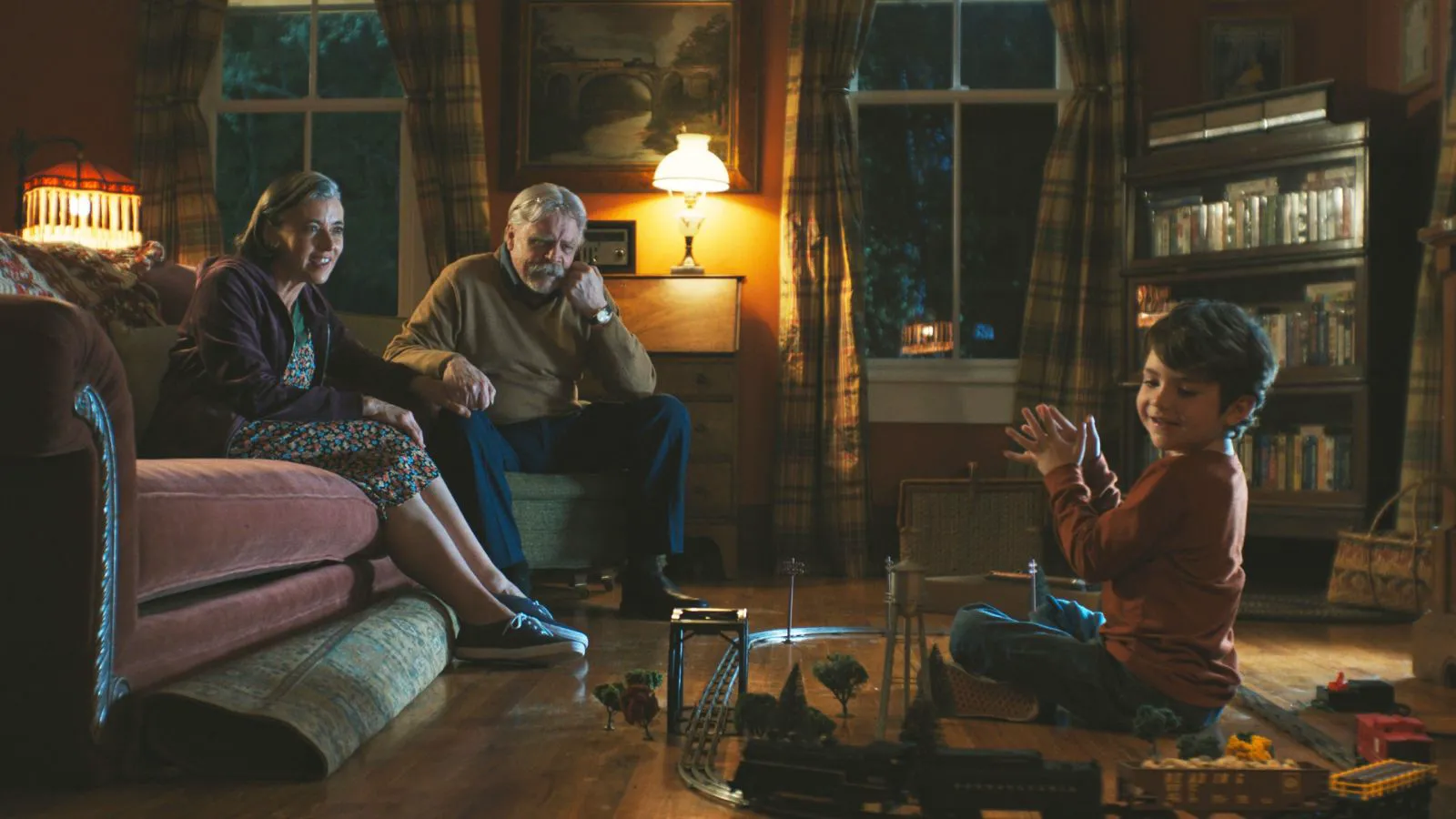The Endearing Enigma of “The Life of Chuck”: A Sentimental Journey Through King’s World
For the past two decades, it’s been rare to find a year devoid of a Stephen King adaptation gracing our screens. Yet, not all attempts achieve artistic success; statistically, only one in every five or six adaptations truly stands out. More often than not, the magic happens when Mike Flanagan, the master of melancholic horror, takes on the King of Horror’s works. His resume includes the underrated “Doctor Sleep,” the uncompromising “Gerald’s Game,” and the heartbreaking “Midnight Mass” (not formally “Salem’s Lot,” but spiritually akin). “The Life of Chuck,” initially seemed like a minor endeavor: a recent short story from the collection “If It Bleeds,” filmed by the director during a break between larger projects—goodbye Netflix, hello Amazon. However, this compact and sentimental film has seemingly become an instant classic, earning the top prize at the Toronto Film Festival. Deservedly so, it seems.

Karen Gillan as Felicia in a still from “The Life of Chuck”
A World Ending with a Thank You
“Thanks, Chuck!”—it’s hard to imagine a more incongruous farewell message to the world. As California crumbles from tectonic shifts, Scandinavia sinks beneath the waves, and toll roads disintegrate under car tires in State X (likely Maine, but who knows?), survivors are greeted by billboards featuring an ordinary accountant in a gray suit and black-rimmed glasses (Tom Hiddleston). Teacher Marty Anderson (Chiwetel Ejiofor), despairing at his inability to connect with his students and, more importantly, their parents (and if the internet doesn’t return, neither will the porn sites!), discusses the merits of the unknown Charlie Krantz with his ex-wife, nurse Felicia Gordon (Karen Gillan). They haven’t been together for years, but as the world descends into chaos, they seek solace not only in strong alcohol but also in familiar embraces. And yet: who is Chuck Krantz?

Mark Hamill as Albie in a still from “The Life of Chuck”
A Journey Backwards
Marty and Felicia’s reunion is just the beginning, or rather, the end. “The Life of Chuck” unfolds in reverse chronological order—from the third act to the first, as dictated by the source material. Mike Flanagan treats the text with remarkable care: Nick Offerman recites entire passages from the story, meticulously adhering to every comma and period. Voice-over narration is often a sign of lazy or uninspired adaptations. However, in “The Life of Chuck,” this literary focus feels less like an obligation to form and more like another symptom of the director’s long-standing habit—a love for extended monologues, which are a hallmark of all Flanagan’s series, from “The Haunting of Hill House” to “Midnight Mass.” At times, it may seem that “The Life of Chuck” is more Flanagan than King—not because the King of Horror is primarily known for horror, but because of the ghosts that foretell death. But let’s not jump ahead to the beginning of the first act.

Tom Hiddleston as Chuck in a still from “The Life of Chuck”
A King Story for Everyone
The film was born from the director’s desire to leave a King film as a legacy for his children: not many of the author’s novels can make it onto a list of literature for home reading during the holidays (when will we finally get an adaptation of “Joyland”?). But the prose that requires fewer age restrictions often becomes a universal monument to King’s talent on screens big and small. And one is reminded not of the overused “The Green Mile,” but rather “Hearts in Atlantis” or “Stand by Me.” The director of the latter, Rob Reiner, slightly smoothed out the motif of oppressive fate that inevitably haunts the characters of any King prose when adapting the novella “The Body,” but did not completely exclude the hand of fate (referring to the bad omen if everyone gets tails). Like any skilled craftsman of suspense, King knows that anticipating the inevitable always tickles the nerves far more effectively than a face-to-face confrontation in the finale. The formula works not only with monsters. From the opening credits of “Stand by Me,” we know that Chris Chambers (River Phoenix) is no longer among the living, but for now, we can immerse ourselves in memories of the last days of summer vacation, when the energy of youth pulsed through the boy. We also know that the strange lodger Ted Brautigan (Anthony Hopkins) will be a friend to the boy Bobby (Anton Yelchin) in “Hearts in Atlantis” for only one summer. And now we know that Charlie Krantz will pass away 39 years later, as the whole world crumbles.
The Dance of Life and Death
Another’s death is always a detective story. The details and intonation depend on the plasticity of the genre: will the spring of intrigue be wound up, or will the buckshot of the sadness of loss be charged? “The Life of Chuck” pretends to be a fantastic film—an apocalypse where the starry sky falls to earth. A mystical film with the secrets of ghosts who live in the turret of a Victorian house under the very roof. A tragic film that states an untimely departure. But Flanagan does much better with a lyrical film about the fact that the inevitability and acceptance of death is a stage of growing up that everyone goes through (sooner or later). And in the simple, perhaps even somewhat naive thought that no one is infected with immortality, there is something so soothing and even healing that it is completely impossible to resist the ordinary charm of ordinary Charles Krantz. You want to dance with him.